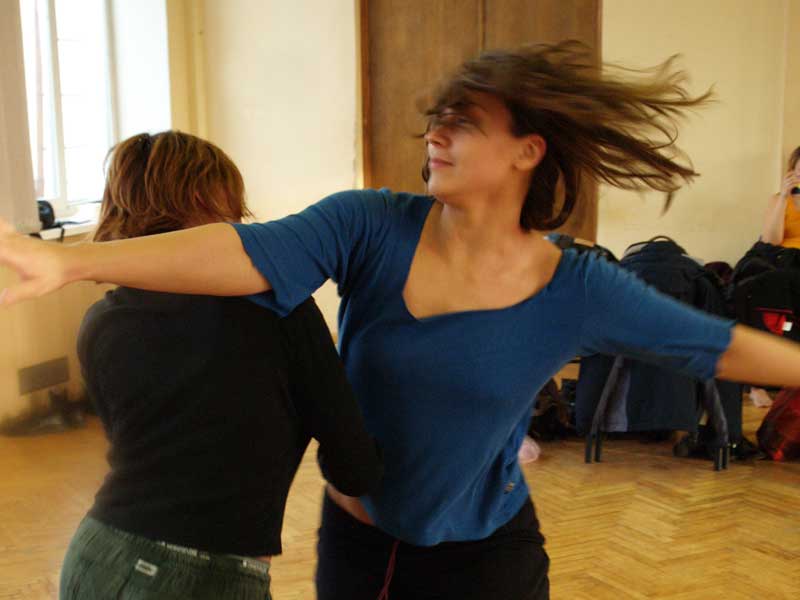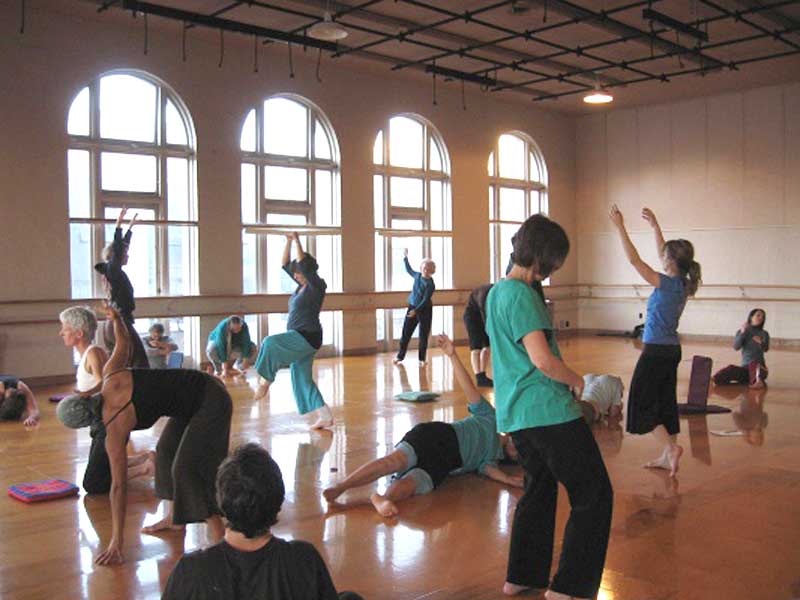MODULE 2: THE SOCIALLY CONSCIOUS BODY
MOC sees Social Somatics as the awareness that bodies are both forming and being formed by our social/cultural histories—it is with this understanding that our second module, the Socially Conscious Body begins. The personal is the political, the political is the personal; we are and always have been an interconnected earth ecology. What is happening in another part of the planet affects us wherever we are.
Early indigenous and eastern philosophies understood this. Many of these earlier cultures were able to integrate their daily practices, rituals and ideologies with an understanding of the interconnectedness of everything. We believe power dynamics don’t shift at a systemic level without first shifting at a personal and relational level. Based on this awareness of inter-connectedness, Social Somatics teaches sense-based participation in the world as a source of transformative power to shift awareness and broader social structures.



We want to engage in creative and embodied action that bridges disconnection and transforms cycles of injustice into new paradigms of shared respect and resources. We work to use somatic wisdom to foster conditions for healthy, sustainable, social structures and relationships.
This module is an immersion in various modalities that facilitate greater awareness of how we each relate to the larger social sphere. In the first part of the module, called “Process Arts”, the curriculum includes Process Work, Theatre of the Oppressed, Authentic Movement, and Liberation Singing. In these classes, we will look within our own bodyminds to discover a greater range of options in relating to diversity, conflict, and our rapidly changing culture. This module include a social change project, homework and integration classes.
The second part of the module is called “Professional Facilitation Training”. This part includes the fundamentals of group facilitation during the first week, followed by more advanced training in the second week. The first level will address skills for the beginner facilitator (The Basics of Group Facilitation) and the second level (Going Deeper: Advanced Facilitation) will address skills to deal with more complex issues such as racism, sexism, ableism, etc.. These two levels of training challenge participants to step into a conscious leadership role as a group facilitator.
The curriculum weaves together practice and theory in:

The core curriculum is supported and enhanced through other activities that serve to build community within the group and provide opportunities for deeper integration of the core material. These activities are: